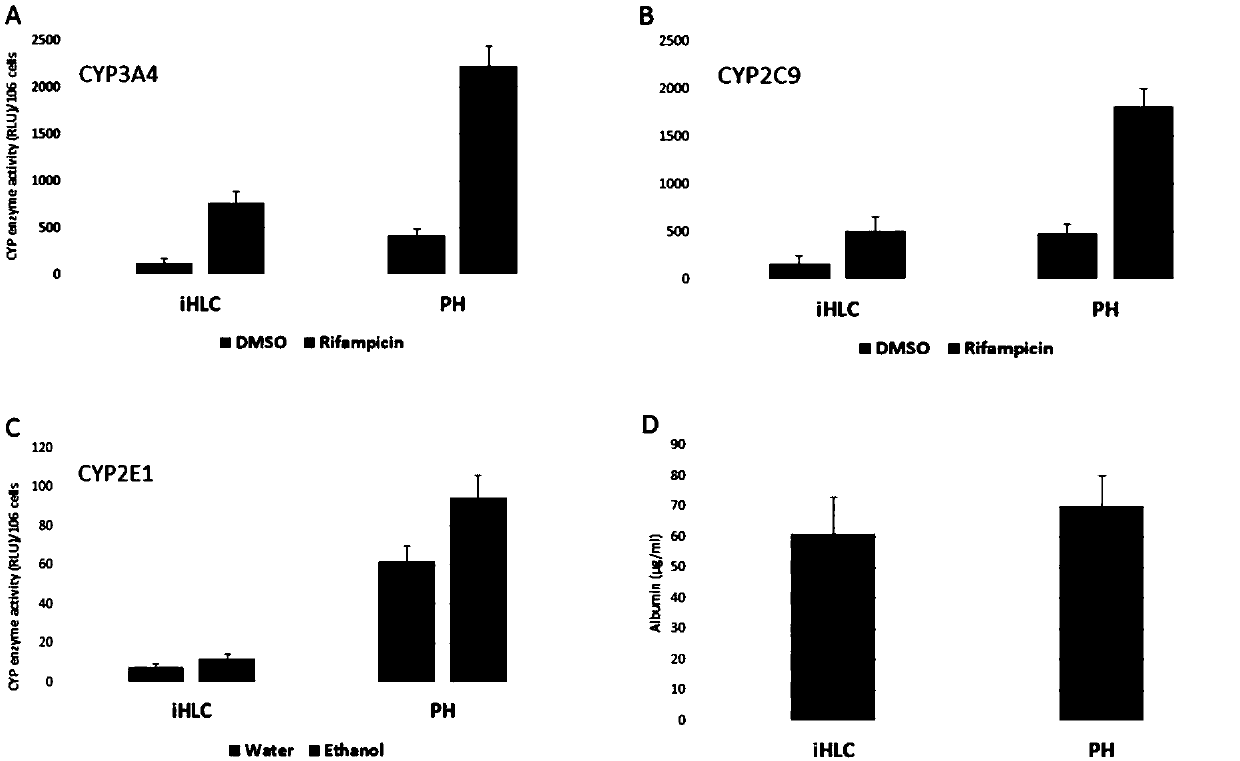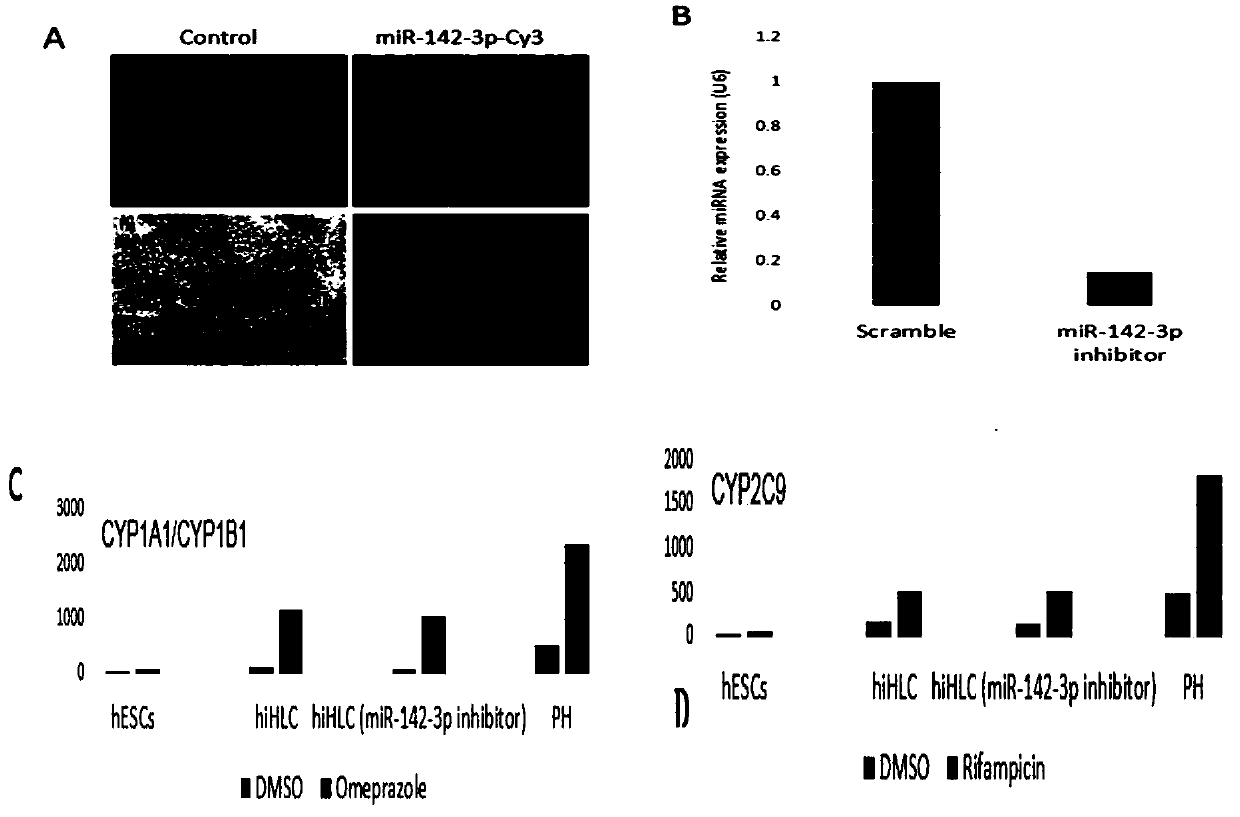Method for improving detoxification function of hepatocyte-like cells derived from human stem cells and application of method
A technology of liver-like cells and detoxification function, applied in the field of biomedicine, can solve the problems of the regulation mechanism that needs further research, low activity, inconsistency, etc., and achieves the effect of improving the detoxification function, improving the activity, and solving the problem of the detoxification function.
- Summary
- Abstract
- Description
- Claims
- Application Information
AI Technical Summary
Problems solved by technology
Method used
Image
Examples
Embodiment 1
[0047] Example 1 A method for improving the detoxification function of human stem cell-derived hepatic-like cells
[0048] Transfection of miR-142-3p inhibitor to regulate CYP2E1 and CYP3A4 enzyme activity during hepatic differentiation of stem cells. However, it is necessary to determine the optimal transfection concentration of miR-142-3p inhibitor, the specific method is as follows:
[0049] 1. Prepare Matrigel-differentiation culture plates. Thaw Matrigel (Corning, 356230) slowly on ice. Take 25ml of ice-cold DMEM-F12 (without HEPES, Invitrogen 11320074), add 400μl of Matrigel (final concentration: 1.6%) and mix well, then take 0.5ml and add to each well of a 12-well plate (Sigma CLS3512). Incubate for at least 30 min at 37 °C or 2-3 h at room temperature to allow Matrigel to clot.
[0050] 2. Preparation of human ESC / iPSC cells. Human ESC / iPSC cells used for differentiation were cultured in a 37°C incubator containing 21% oxygen and 5% carbon dioxide. The medium was t...
Embodiment 2
[0067] Example 2 Inhibition of miR-142-3p in human-derived hepatic-like cells can improve the function of hepatic-like cells
[0068] The liver-like cells induced by the method of Example 1, after inhibiting miR-142-3p, greatly increased the expression levels of their mature cell-related marker genes, such as ALB, ARG1, PCK1, CPT1, CYP3A4 and CYP2E1 ( Figure 4 shown). also increased the protein expression level of albumin ( Figure 5 shown), and albumin and urea synthesis levels ( Figure 6 shown).
PUM
 Login to View More
Login to View More Abstract
Description
Claims
Application Information
 Login to View More
Login to View More - Generate Ideas
- Intellectual Property
- Life Sciences
- Materials
- Tech Scout
- Unparalleled Data Quality
- Higher Quality Content
- 60% Fewer Hallucinations
Browse by: Latest US Patents, China's latest patents, Technical Efficacy Thesaurus, Application Domain, Technology Topic, Popular Technical Reports.
© 2025 PatSnap. All rights reserved.Legal|Privacy policy|Modern Slavery Act Transparency Statement|Sitemap|About US| Contact US: help@patsnap.com



